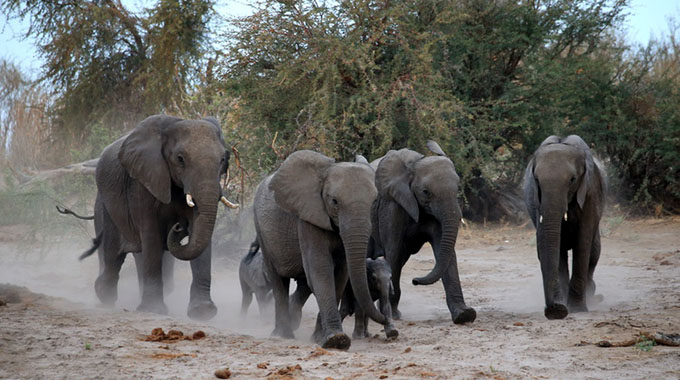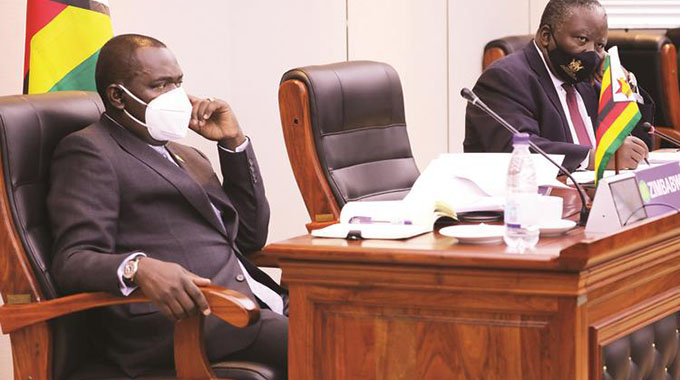Zim celebrates World Elephant Day

Herald Reporter
ZIMBABWE joined the rest of the world in commemorating World Elephant Day on Wednesday at a time when the country was struggling with an unsustainable elephant population.
World Elephant Day is commemorated on August 12 and this year’s day came at a time when the world is raising awareness on the dwindling elephant population.
However, Zimbabwe’s elephant population is around 84 000 against a carrying capacity of around 50 000 for a sustainable environment.
Hwange National Park has an elephant population of between 45 000 to 53 000 against an ecological carrying capacity of 15 000.
Hwange National Park is Africa’s third largest wildlife sanctuary after Kenya’s Serengeti and South Africa’s Kruger national park.
Zimbabwe has an excellent track record on the preservation of its wildlife with Akashinga — a non-profit, all-female anti-poaching unit, among other security initiatives to protect wildlife.
Research done by Oxford University’s Wildlife Conservation Research Unit in partnership with Panthera — a US-based organisation — has shown that Zimbabwe is one of the 10 countries in the world with the best wildlife conservation methods.
This makes it easy for Zimbabwe to market its wildlife, but the imposition of illegal economic sanctions by the West has stalled the export of elephants and other wildlife products.
Zimbabwe Parks and Wildlife Management Authority (ZimParks) spokesperson Mr Tinashe Farawo said the country could tap into the vast wealth that it is sitting on if it is allowed to sell wildlife products and stockpiles.
“The World Elephant Day is very important to us.
“Two thirds of the world’s population of elephants are in Southern Africa and Zimbabwe has the second largest population of elephants in the world after Botswana.
“These numbers are a result of good management practices. It is a day where we also recognise our conservation partners,” said Mr Farawo.
“However, the elephants are overpopulated and they are causing a lot of problems to our communities and our people must benefit from these elephants.”
At least 50 percent of people killed by wild animals in Zimbabwe were victims of elephant attacks.
“On our part we have managed to combat the problem of poaching, but what we want is to be allowed to sell these elephants. We can also repopulate former elephant ranges in Africa. We have the capacity,” said Mr Farawo.
Zimbabwe is said to be sitting on ivory and rhino horn stockpiles worth US$600 million which could be used to support the conservation of wildlife and natural resources for the next 20 years.
President Mnangagwa last year condemned the “one-size-fits-all” ban on ivory and rhino horn trade enforced by the Convention on International Trade in Endangered Species (CITES).
He was speaking at the inaugural African Union and United Nations Wildlife Economy Summit in Victoria Falls last year.
The summit was attended by Presidents Mokgweetsi Masisi of Botswana, Edgar Lungu of Zambia and Hage Geingob of Namibia.
Campfire Association director, Mr Charles Jonga said communities were facing challenges sharing space with wildlife, resulting in conflict between people and animals.
“The world must listen when rural communities say they cannot look after the elephant unless they benefit from it.”
“We are proud custodians of the second largest elephant population in the world and we ask the world to appreciate our successful conservation track record.
“Our rural communities continue to make sacrifices as they live alongside these magnificent, but highly dangerous animals,” said Mr Jonga.










Comments